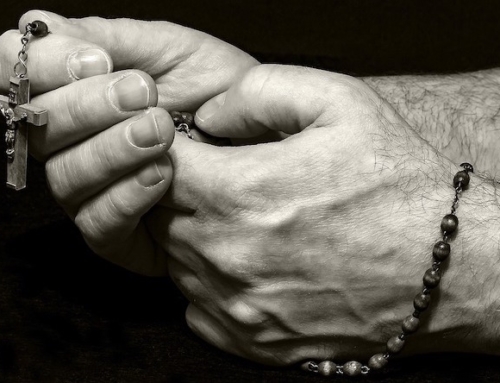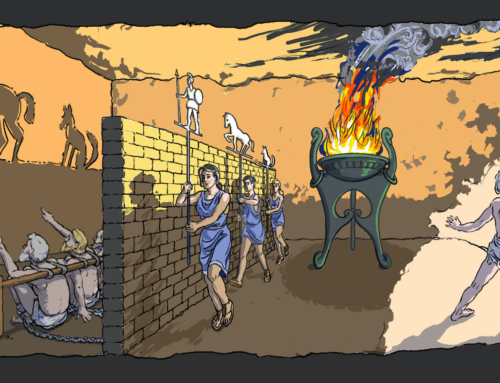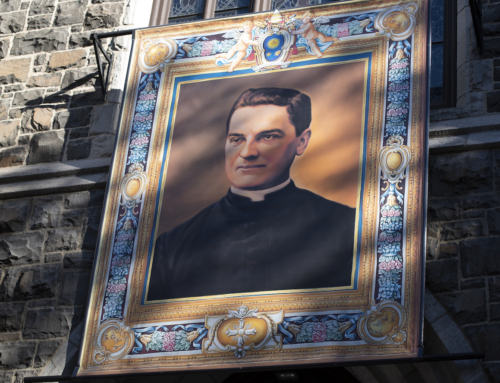Yet we do speak a wisdom to those who are mature, but not a wisdom of this age, nor of the rulers of this age who are passing away. Rather, we speak God’s wisdom… -1 Cor 2:6-7
The Church’s prohibition of contraception is commonly considered one of the most unreasonable of her teachings. It might be assumed therefore that the people who adhere to it do so not because the doctrine has intrinsic merit but only because they have a particular penchant for subservience. And yet, for those attentive to these things, it’s not uncommon to hear testimonies from people who came to love the Church because they recognized the wisdom of her teaching on sexuality. In the past month, there have appeared on different news sites and blogs at least three such testimonies from converts to the Catholic faith.
The first comes from a former quarterback for the Dallas Cowboys, Chris Greisen. While Greisen became Catholic when he married his wife, his faith reached new heights eight years later when he began listening to catechetical recordings produced by Lighthouse Catholic Media. Greisen describes the change:
The more CDs I listened to and books I read, the more convinced I became of the need to let go of my own opinions and become a more complete disciple of Christ. One of the most striking ways this took place was with contraception. In a world where contraception is a given, the Catholic Church is the only Christian church that doesn’t budge on the issue [which had been agreed upon by all major denominations until 1930]. I was totally amazed at the Church’s ingenious teachings on being open to life, and I couldn’t believe I had never heard them before.
For Greisen, the Church’s teaching on contraception was uncommonly insightful and a powerful means toward greater union with God. Having retired from football, he now shares what he has learned, teaching theology at a Catholic high school in Wisconsin.
The second testimony comes from a sociologist at the University of Texas at Austin, Mark Regnerus. Regnerus has written two major books on the relationship habits of young people in America and scores of articles pertaining to sexuality and society. After the birth of their third child, he and his wife procured a tubal ligation. They “regretted it within three months.” The operation hadn’t bolstered their marriage, and it left them “with unanticipated regret about empty chairs around the table that will never be filled with laughter.” In the midst of their sorrow, the Church’s teaching began to register. Regnerus writes,
We didn’t come to those conclusions after we joined the Catholic Church. No, the Church looked increasingly appealing because she was the only one who explained what we felt.
Citing the celebrated sociologist Anthony Giddens, Regnerus goes on to explain that Western culture has separated sex from procreation and thereby uprooted it from its natural habitat: marriage and the family. “Liberated” from its proper context, sex loses some of its substance and becomes increasingly misunderstood.
The third testimony comes from the writer and editor David Mills. While still Protestants, he and his wife had accepted the Church’s teaching on contraception and, in their advanced age, were blessed with a “bonus baby.” They were happy, but their friends were slightly dismayed.
Mills has done readers the service of describing his conversion at greater length here and here. Let it suffice here to say that the Millses, feeling increasingly out of place, took their “bonus baby” to what was for them a “bonus Church.” Mills explains:
The teaching and the incarnate fruit of that teaching pointed us to the Catholic Church, as something more than a source of useful ideas. The contrast between the joy of having a child and our friends’ belief that one couldn’t possibly want a child at our age told us something about the Church as a voice that speaks the counter-cultural truth.
Elsewhere he makes a similar point regarding the addition of his two youngest children, both born after he and his wife accepted the Church’s teaching:
That addition radically changed our lives for the better. We couldn’t imagine life without them, not just for themselves but for the kind of family their addition created.
We naturally noticed, as we grew closer to the Church, that only she proclaimed this truth that, to us, was increasingly self-evident and objectively life-changing. And she did so with a complex and extensive and subtle understanding of man, sexuality, and society, also found in its fullness nowhere else.
To the casual observer, the opposition between the Church’s teaching on contraception and the consensus of the Western world is just one more sign of the Church’s irrelevance. But to many who have read up on that teaching and experienced it in their lives, the doctrine betrays a complex, extensive, and subtle understanding. For many of the people who’ve had to work even to encounter the Church’s doctrine, it’s not that the teaching is too antiquated for the world’s consideration, it’s that it’s too profound.
✠
Image: Lucas Cranach the Elder, The Garden of Eden







